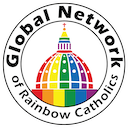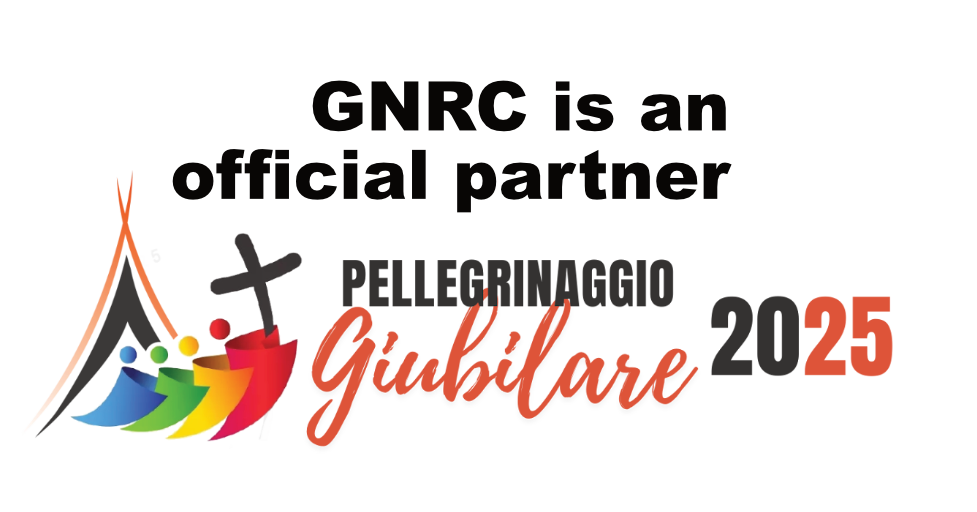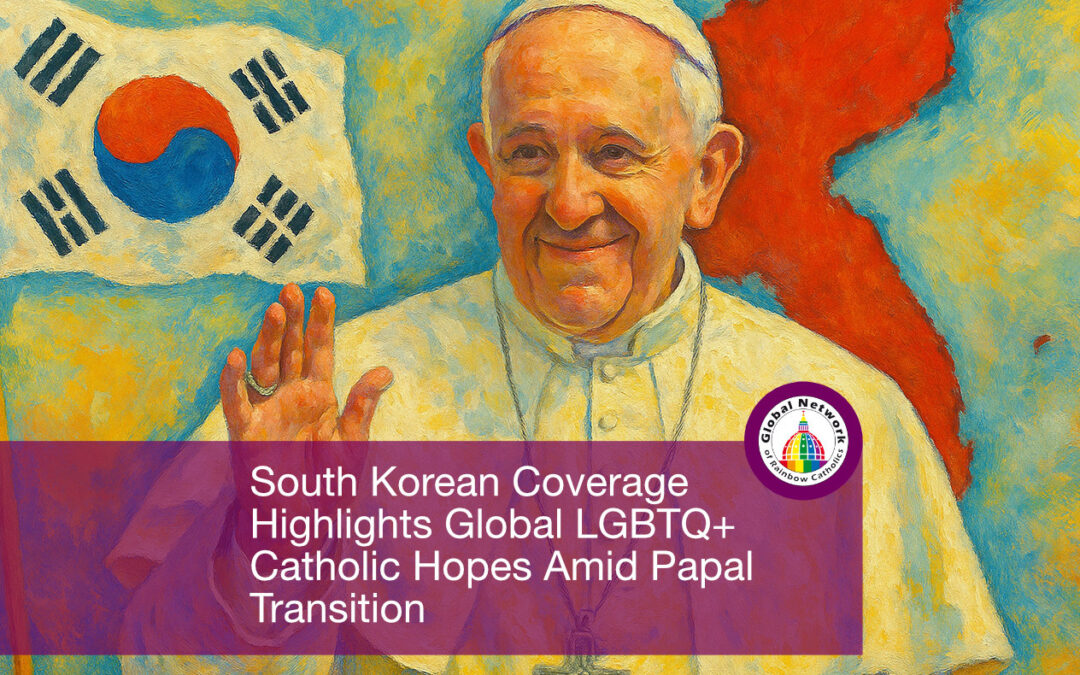LGBT+ people are also part of the Church… May the Pope be one who embraces them”
By Jang Ye-ji, Reporter
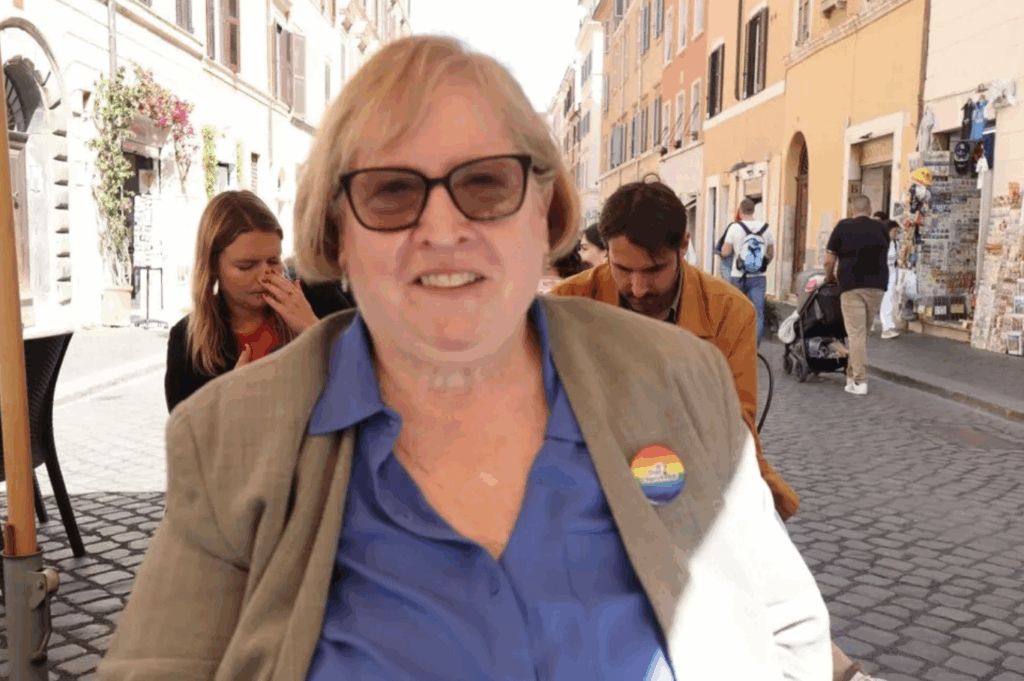
On May 7, near St. Peter’s Square in the Vatican, Maryanne Duddy-Burke, co-chair of the Global Network of Rainbow Catholics (GNRC), the largest Catholic queer human rights group, was interviewed. Photo by correspondent Jang Ye-ji
In over 2,000 years of Catholic history, homosexuals and LGBTQ individuals have endured long-standing discrimination and exclusion. The passing of Pope Francis, who had opened his arms to them, has left a deep sense of loss. As excitement fills St. Peter’s Square in the Vatican while the world awaits the election of a new pope, those who have long been marginalized within the Church watch the results with a mix of tension and hope..
Marianne Duddy-Burke, co-chair of the Global Network of Rainbow Catholics (GNRC), the largest Catholic LGBTQ+ NGO, is among those watching with anticipation. Since May 6, she has been staying near the Vatican until the end of the conclave. An American, Duddy-Burke leads a network of 45 Catholic queer groups spanning Africa, Asia, and Latin America. Among them is South Korea’s lesbian Catholic community “AlphaOmega.” These communities, often marginalized in society, use this global network to resist oppression and advocate for equal rights and inclusion through education and awareness-raising within the Church.
The organization also takes part in the Synod, where laypeople, religious, and women propose reforms for the Church, working to ensure the integration of LGBTQ+ and homosexual believers into the Church. The Synod is one of Pope Francis’ key reforms aimed at creating a more horizontal and democratic Church.
On the 7th (local time), Hankyoreh met Duddy-Burke near St. Peter’s Square. She stated, “We came to the Vatican to visibly affirm that we, too, are part of the Church, and to send a message hoping that the Church becomes more inclusive toward LGBTQ+ people.” Duddy-Burke added, “We hope the path of reform initiated by Pope Francis continues. We wish for a Church that understands and welcomes us, and for doctrines to change—especially those that claim the existence of gay or transgender people is not part of God’s plan.”
A Pope who showed inclusion gave queer believers a sense of liberation
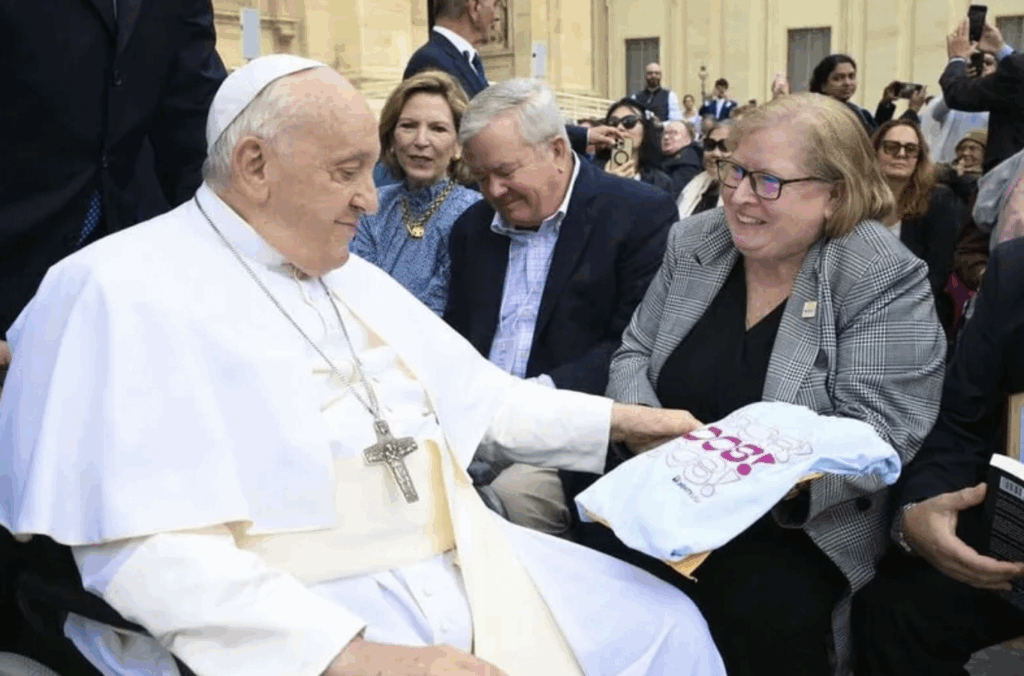
In October 2023, Marianne Duddy-Burke, co-chair of the Global Network of Rainbow Catholics (GNRC), met with Pope Francis and the Vatican. Photo courtesy of GNRC.
For LGBTQ+ believers—long considered “taboo” in the Catholic Church—the experience of being recognized as part of the Church is deeply significant. Pope Francis is regarded as the most inclusive and progressive pope in Catholic history regarding homosexuality and LGBTQ+ rights. His actions since his 2013 election became a driving force behind the founding of the Global Network of Rainbow Catholics in 2014.
Duddy-Burke recalled the widely known moment in July 2013, when Pope Francis, asked about gay priests, responded: “Who am I to judge?” She noted, “The Pope didn’t demonize or condemn queer people. He used the same language we use—like ‘gay’ and ‘lesbian.’ That moment encouraged the formation of many more queer Catholic groups.”
A Crisis in Catholicism… The Church Must Embrace a New Reality, Not Retreat to the Past
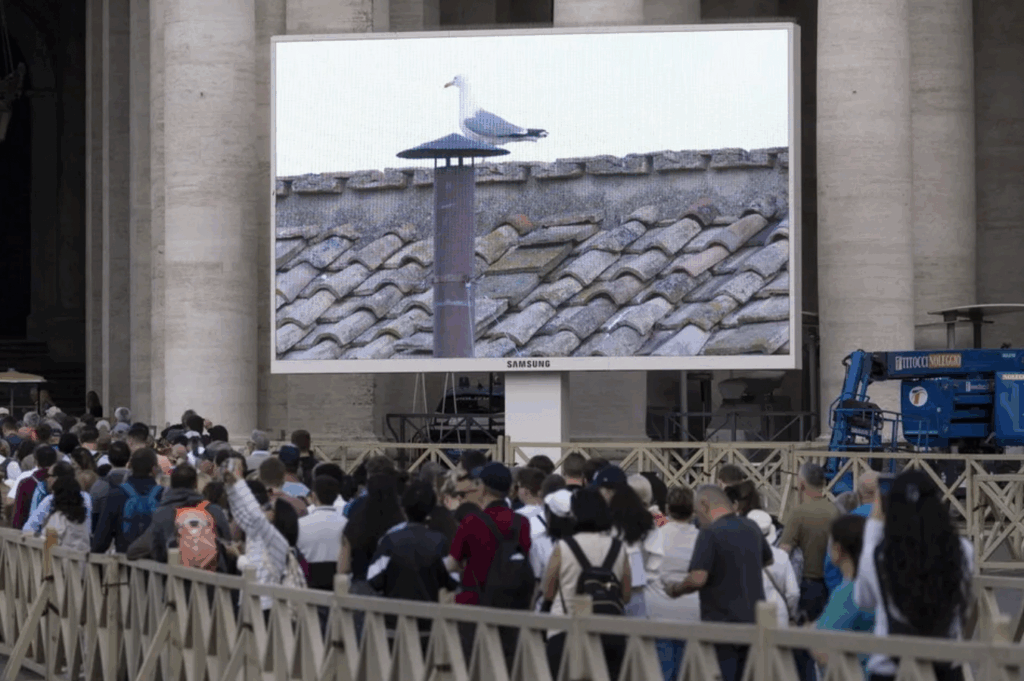
On the second day of the conclave, May 8 (local time), believers gathered in St. Peter’s Square at the Vatican, watching the chimney via a large screen. Photo: EPA/Yonhap News.
Pope Francis made major contributions by publicly supporting civil union laws for same-sex couples and speaking out against the criminalization of homosexuality—issues long ignored by the Catholic Church. However, these moves sparked friction with conservative Catholic forces defending traditional family values. Following Pope Francis’ passing on April 21, hardline conservative factions launched campaigns during the conclave, calling for a return to strict doctrinal Catholicism.
Duddy-Burke, however, pointed to the long-standing global decline in Catholic membership, stressing that the Church must not become an isolated island but instead embrace more people within society. She said, “Amid growing nationalism and xenophobia, the new pope must stand with the world and speak out morally on climate change, refugees, and war. Beyond LGBTQ+ issues, the Church must also move past its restrictive stance on women’s roles, divorce, and remarriage, and learn how to nurture cultural diversity.”
Regarding the incident where former U.S. President Donald Trump released an AI-generated image of himself as the Pope, Duddy-Burke sighed deeply. “In reality, Catholic supporters of Trump in the U.S. are well-funded. The Republican Party tried to influence the papal election,” she said, “but such actions are delusional and rooted in a desire for total control. They are entirely inappropriate and offensive.”
■ Catholic Reform Still Requires Further Steps… Criticism Over the Conclave’s Lack of Transparency
For about a decade at the helm of the Global Network of Rainbow Catholics, Duddy-Burke has witnessed positive change under Pope Francis, yet she acknowledges the pace was often slow and not without limits. Pope Francis himself opposed same-sex marriage.
Duddy-Burke noted that in regions like Africa and Eastern Europe, leaders of queer organizations face unsafe conditions, including expulsion. “Since the history of queer rights activism is still relatively short, the Catholic Church has a long way to go in terms of reform. Pope Francis was the one who began this journey,” she emphasized.
She added, “For too long, many Church leaders have kept their distance from us, but the dialogue must continue. It is crucial to recognize that Church doctrine can cause harm and that change is needed.”
She also criticized the conclave’s closed nature, in which cardinals vote in complete isolation from the outside world, questioning whether this is an appropriate decision-making process for the modern era. “Just as the Synod is a space for hearing diverse voices,” he said, “the conclave, too, should have a channel to listen to what people outside the Vatican desire in a new pope.”
Vatican / Correspondent Jang Ye-ji
penj@hani.co.kr
This blog post is a translated excerpt of the article originally published on The Hankyoreh (www.hani.co.kr), an independent South Korean news outlet known for its progressive stance and in-depth international reporting. We are not the authors of the original piece. The full article in Korean is available at: https://www.hani.co.kr/arti/international/europe/1196530.html
